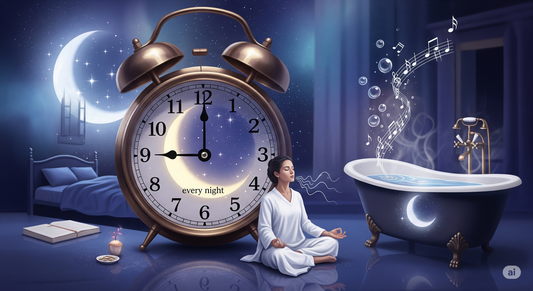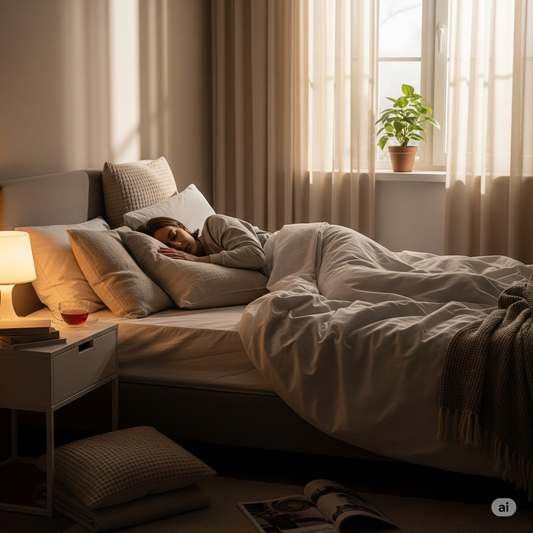
Melatonin in Australia: The Sleep Aid Everyone’s Talking About (But Is It Safe?)
Melatonin Use in Australia: Regulations, Safety, and Trends (2024)
Since becoming available over-the-counter (OTC) in 2021, melatonin has surged in popularity as a sleep aid among Australians. But with its increased accessibility come questions about safety, effectiveness, and proper use. This article covers the latest trends, regulations, and expert recommendations on melatonin in Australia.
1. Why Are Australians Turning to Melatonin?
Melatonin is a hormone naturally produced by the brain to regulate sleep-wake cycles. Synthetic melatonin supplements are now widely used for:
Insomnia (difficulty falling or staying asleep)
Jet lag (especially for frequent travelers)
Shift work sleep disorder
Circadian rhythm disorders (e.g., delayed sleep phase syndrome)
Rising demand factors:
Increased stress and screen time disrupting sleep
Preference for a "natural" alternative to prescription sleeping pills
Easier access since it became OTC for adults in 2021
2. Melatonin Regulations in Australia
Unlike many countries where melatonin is freely available, Australia has strict controls:
For Adults (18+)
Available OTC in pharmacies (no prescription needed).
Maximum dose without a script: 2 mg (e.g., Circadin 2 mg slow-release).
Higher doses (3–10 mg) require a doctor’s prescription.
For Children (<18)
Still prescription-only (used for ADHD, autism-related sleep issues).
Common brand: Circadin (only approved for children under medical supervision).
3. Does Melatonin Work?
Evidence-Based Benefits
✔ Jet lag: Helps reset sleep cycles after long flights.
✔ Shift work sleep disorder: Can improve sleep quality for night workers.
✔ Mild insomnia: May reduce time to fall asleep.
Limitations
❌ Not a cure for chronic insomnia (Cognitive Behavioral Therapy for Insomnia, or CBT-I, is more effective long-term).
❌ Less effective for maintaining sleep (best for falling asleep, not staying asleep).
4. Safety & Side Effects
Short-Term Use (Generally Safe)
Mild side effects: Drowsiness, headaches, dizziness.
Best taken 30–60 minutes before bedtime.
Long-Term Use (Caution Advised)
Limited research on prolonged use.
Possible hormone disruption if misused.
Not recommended for: Pregnant women, people with autoimmune disorders, or those on certain medications (e.g., blood thinners, immunosuppressants).
5. Best Melatonin Brands in Australia (2024)
| Brand | Dose | Type | Availability |
|---|---|---|---|
| Circadin | 2 mg | Slow-release | OTC (Pharmacies) |
| BioMelatonin | 1–2 mg | Fast-dissolve | OTC (Pharmacies) |
| Nature’s Way Sleep | 1.5 mg | Herbal blend (with chamomile) | OTC (Pharmacies) |
| Compounded melatonin | 3–10 mg | Custom doses | Prescription only |
6. Alternatives to Melatonin
If melatonin isn’t effective, consider:
Sleep hygiene: Dark room, no screens before bed, consistent sleep schedule.
Magnesium supplements: May help relaxation (e.g., Mg glycinate).
Prescription sleep aids: Only under medical supervision (e.g., temazepam for short-term use).
7. Where to Buy Melatonin in Australia?
Pharmacies: Chemist Warehouse, Priceline, TerryWhite (2 mg or less).
Online: Amazon Pharmacy, Pharmacy Online (requires verification).
For higher doses/children: GP prescription needed.
Final Verdict
Melatonin can be a useful short-term sleep aid, but it’s not a magic pill. Proper sleep habits and medical advice (for chronic issues) are still the best approach.
Would you like recommendations for sleep specialists or bulk-billed sleep clinics in your area?
References
Therapeutic Goods Administration (TGA) - Melatonin Down-Scheduling







